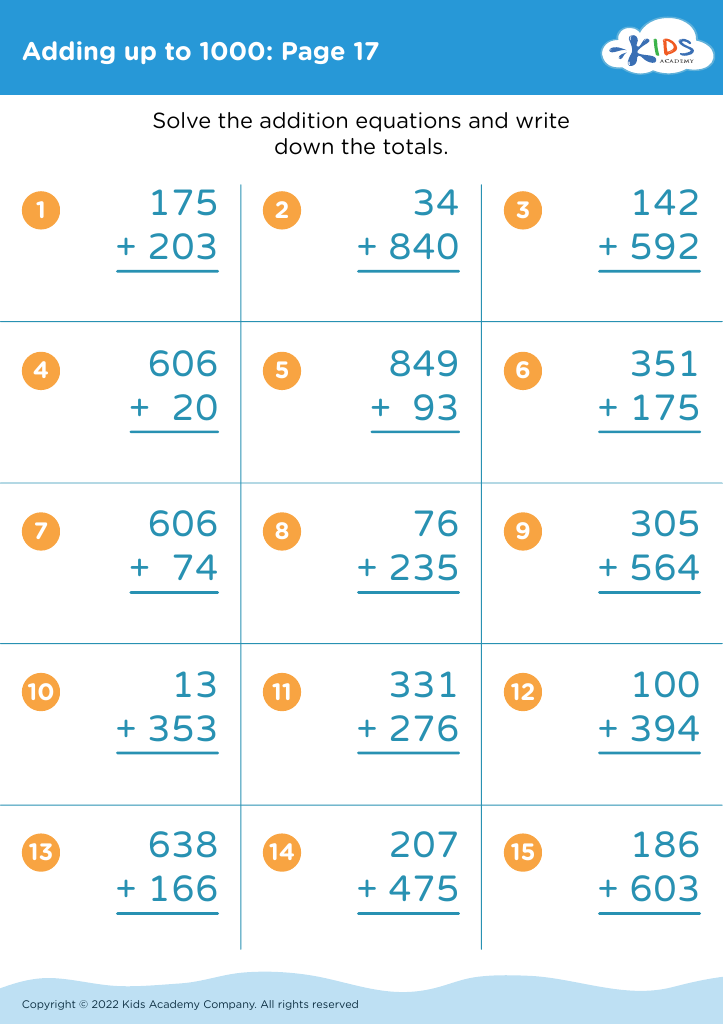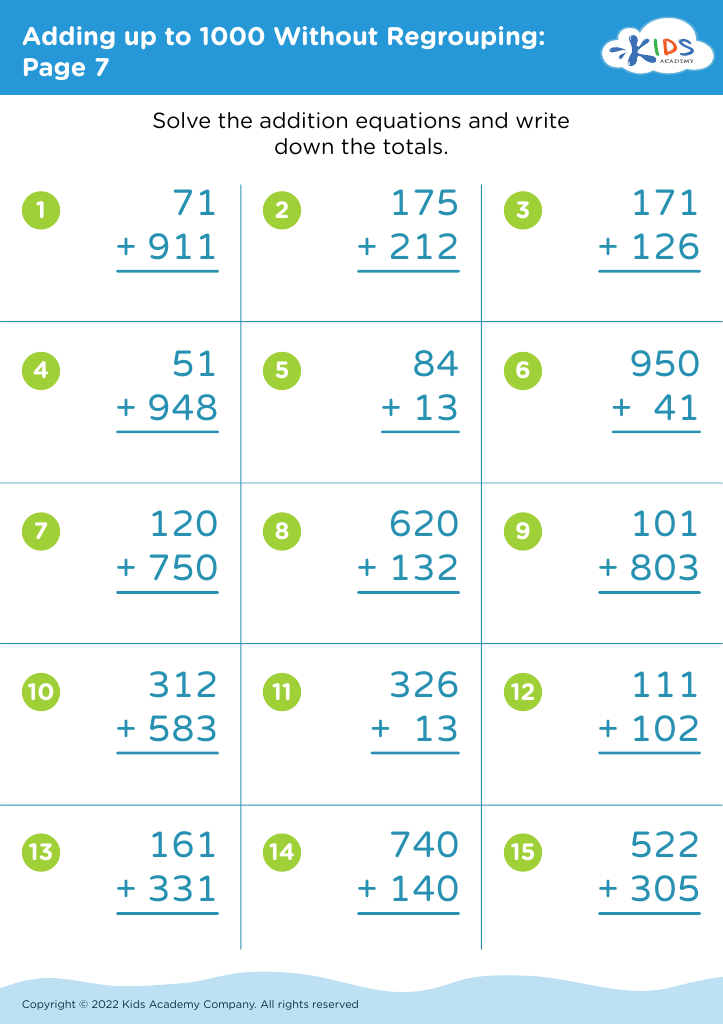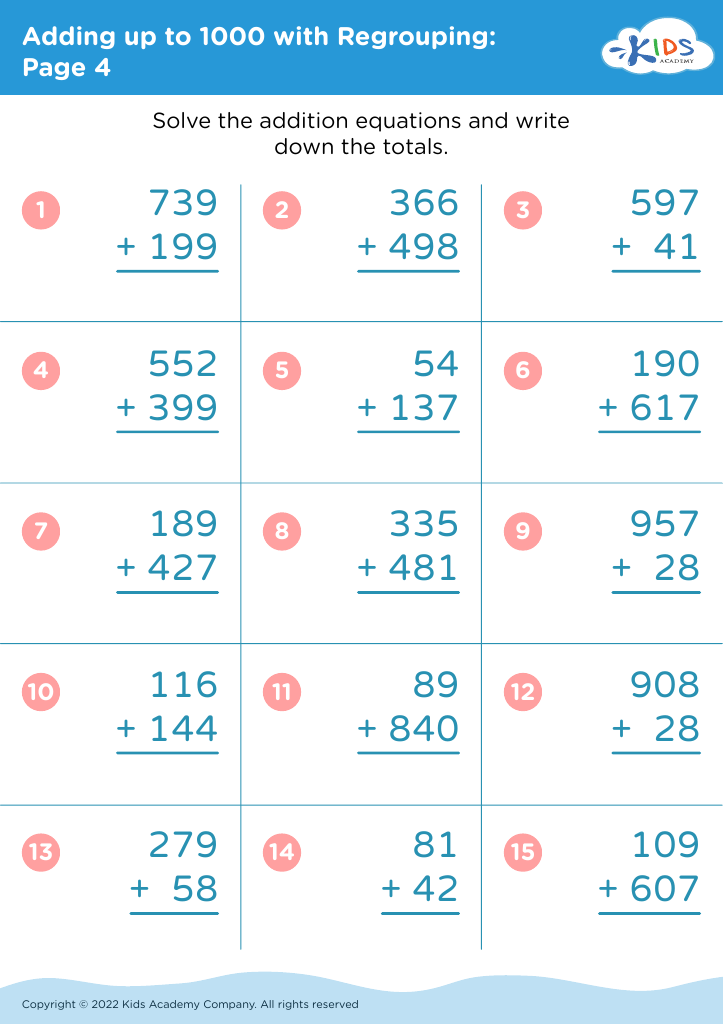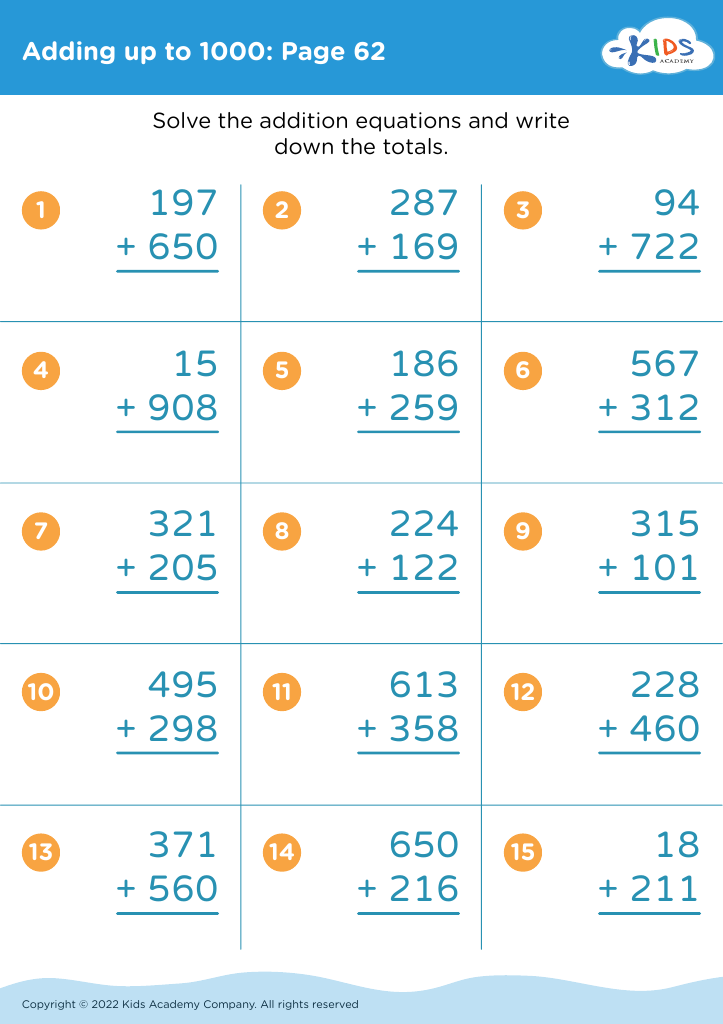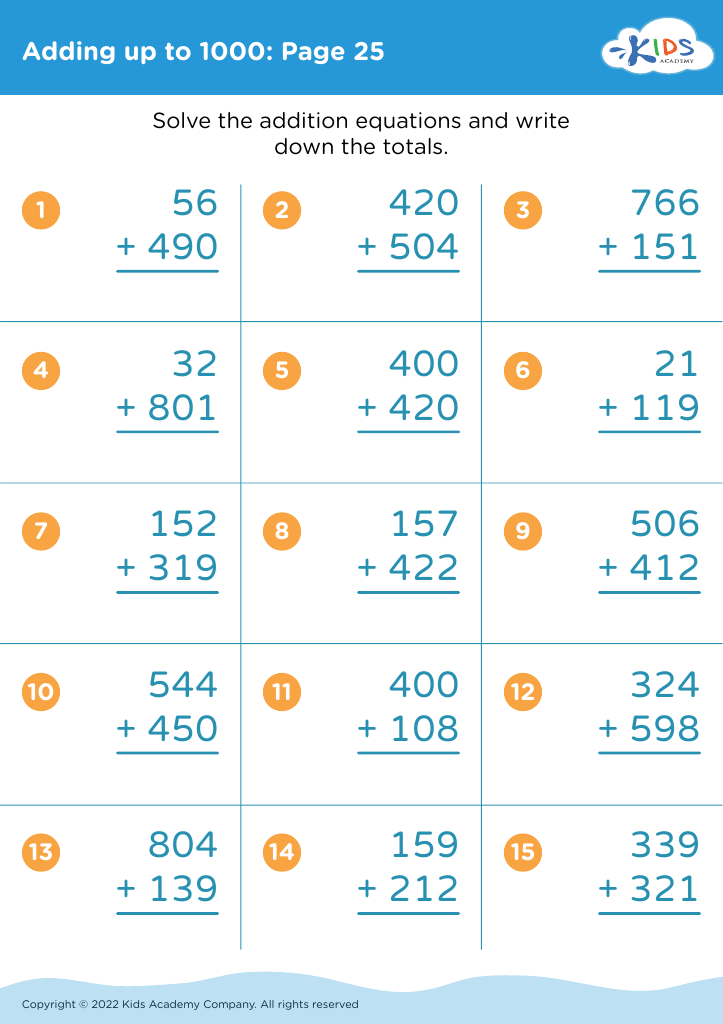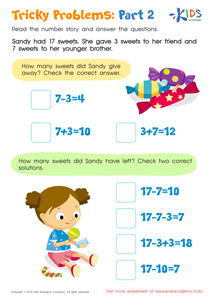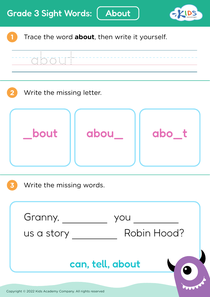Fraction comparison Grade 3 Adding up to 1000 Worksheets
13 filtered results
-
From - To
Enhance your third grader's math skills with our Fraction Comparison worksheets, designed specifically for adding up to 1000. These engaging, printable activities help students master the concept of fractions, encouraging them to compare and understanding their values. As they work through stimulating exercises, learners will develop critical thinking and problem-solving abilities. Our worksheets align with Grade 3 curriculum standards, making them excellent resources for classroom activities or at-home practice. Explore the joy of learning fractions while building confidence in math, transforming challenges into successes, and paving the way for higher-level math concepts. Download the Fraction Comparison worksheets today!
Understanding fraction comparison is essential for Grade 3 students, as it lays the groundwork for more complex math concepts in later grades. For parents and teachers, caring about this topic is crucial for several reasons.
Firstly, mastering fractions helps children develop critical thinking and problem-solving skills. Comparing fractions teaches them to analyze parts of a whole and understand ratios, which are vital in real-life scenarios, such as cooking, budgeting, or measuring ingredients.
Additionally, proficiency in fraction comparison enhances children’s confidence in math. Many students struggle with fractions, thus reinforcing this skill early ensures they can tackle more challenging topics in the future. Failure to grasp these concepts can lead to long-term academic challenges and anxiety regarding math.
Moreover, by integrating fraction comparison with the broader framework of numbers up to 1000, children learn to visualize relationships in numbers, fostering a deeper connection with mathematics. Teachers and parents can use everyday situations and practical examples to enhance engagement.
In summary, focusing on fraction comparison equips students with crucial mathematical skills, boosts their confidence, and prepares them for future academic success, making it an important area of focus for educators and parents alike.

